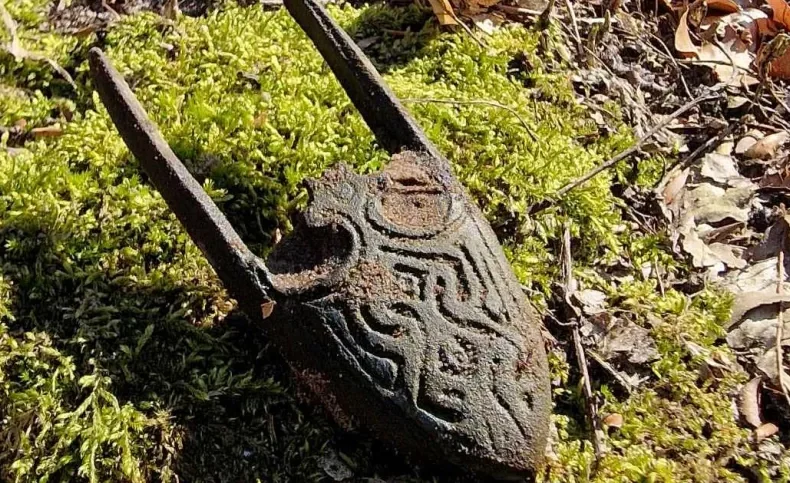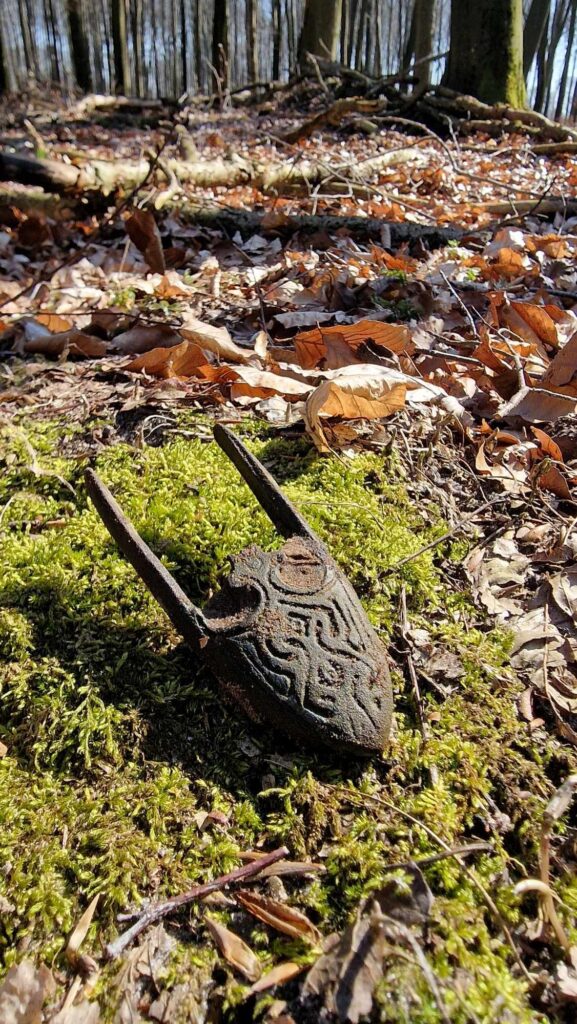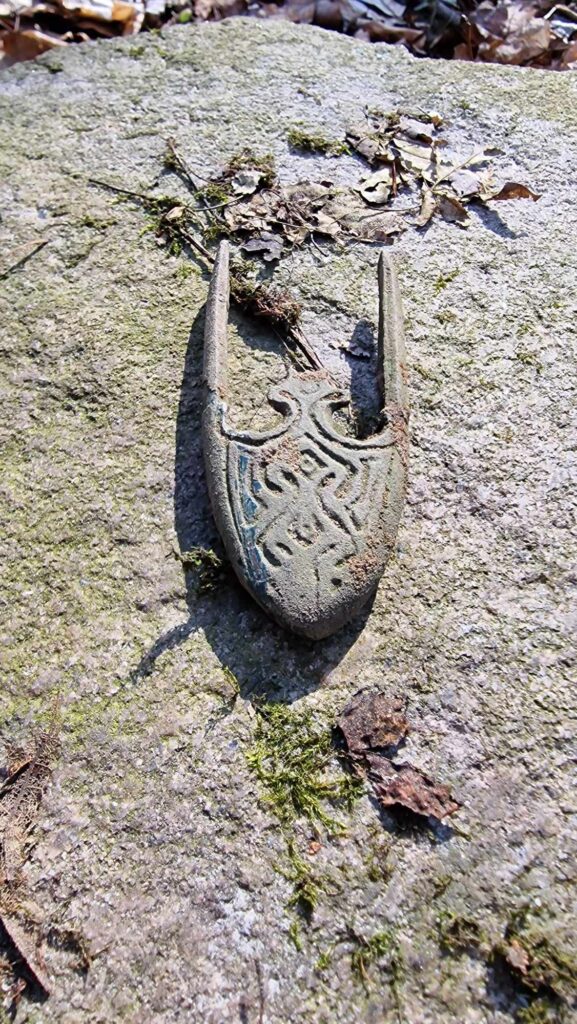
Early Medieval Sword Scabbard Found in Iława Forests
In a forest near the city of Iława, Poland, a local history enthusiast has made a significant discovery that offers important insights into the region’s past. Michał Młotek, using a metal detector, uncovered a lower part of an early medieval sword sheath estimated to be around a thousand years old, and he aims to donate this rare artifact to the Ostróda Museum.
Młotek, a treasure hunter affiliated with the Iława Search Group, believes that the bronze sword sheath is a part of the weaponry of a warrior from the Prussian tribe. To emphasize the importance of his find, he reported it to the Elbląg delegation of the Provincial Office for the Protection of Monuments. Experts have noted that the sword sheath is not only aesthetically pleasing but also carries symbolic meaning, serving as an indicator of social status and power.

Michał Młotek is recognized as a passionate advocate for local history, having managed the Iława Internet Museum for 20 years. This discovery marks another significant contribution to the region’s history, following his award in the 2022 Science Popularizer competition. He previously found an old shoe dating back to the second half of the 10th century, which was also transferred to the Museum of Warmia and Mazury in Olsztyn.
Młotek has expressed his commitment to ensuring that this new find enriches the collections of the Ostróda Museum. Łukasz Szczepański, an archaeologist from the Ostróda Museum, announced that this sword sheath will be the fifth early medieval example in the museum’s collection. Such artifacts are displayed as evidence that swords were considered elite weapons in the region.

This discovery in Iława is just one of many valuable finds made by local history enthusiasts. In mid-March, another history enthusiast found a small discoidal object made of bronze near Leśniewo. According to a report from the Monument Protection Services, this piece is likely a decorative belt piece of the Balteus type. These belts, used by Roman legionnaires and later adapted by the Elbe tribes, spread to Northern Europe and the Baltic Sea region.
These discoveries highlight the contributions of local history enthusiasts to the understanding of regional history and provide important clues about the past. Finds like these in Iława and its surroundings continue to offer exciting opportunities for history lovers.
Cover Photo: Michał Młotek
You may also like
- A 1700-year-old statue of Pan unearthed during the excavations at Polyeuktos in İstanbul
- The granary was found in the ancient city of Sebaste, founded by the first Roman emperor Augustus
- Donalar Kale Kapı Rock Tomb or Donalar Rock Tomb
- Theater emerges as works continue in ancient city of Perinthos
- Urartian King Argishti’s bronze shield revealed the name of an unknown country
- The religious center of Lycia, the ancient city of Letoon
- Who were the Luwians?
- A new study brings a fresh perspective on the Anatolian origin of the Indo-European languages
- Perhaps the oldest thermal treatment center in the world, which has been in continuous use for 2000 years -Basilica Therma Roman Bath or King’s Daughter-
- The largest synagogue of the ancient world, located in the ancient city of Sardis, is being restored











Leave a Reply